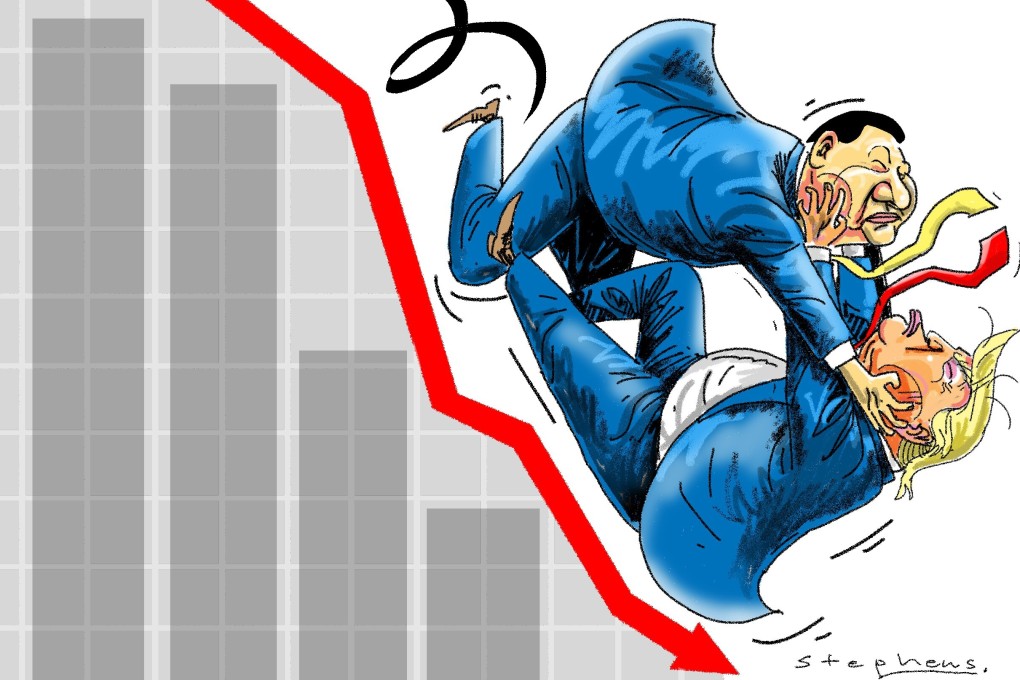Opinion | Coronavirus crisis caught Donald Trump and Xi Jinping unprepared, and US-China relations are going from bad to worse
- Trump’s ineptitude at managing the Covid-19 crisis has been equalled only by his agonising daily briefings. Xi, meanwhile, is trying to divert attention from Beijing’s early lapses by authorising propaganda to restore China’s image

In the 1950s, Tom Lehrer, a Harvard student who would later become an MIT professor, penned a satirical song in which young graduates celebrate the beginning of their professional lives, before “sliding down the razor blade of life”. That line pretty well sums up what the past three months have felt like for me and, I suspect, many others.
Who could have predicted that nature’s greatest challenge in a century to the health of humanity would come when two of the most ill-prepared men are in the highest offices of the two greatest powers on Earth?
China’s President Xi Jinping, for his part, could bless the trade agreement, thereby capping at relatively little cost unwelcome American pressure on China’s economy, while enjoying the sight of Trump dismantling the foundations of America’s post-war power. China frequently refers to the current time as an “historic period of strategic opportunity”.
